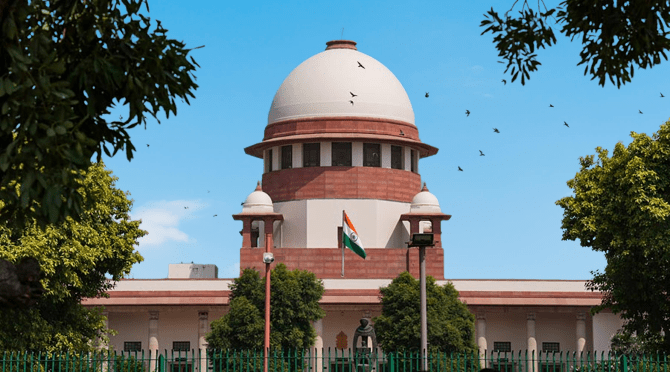
The Supreme Court in the matter of Ashwini Kumar Updahyay v/s Union of India & Ors observed that the serious or grave offenses should be defined.
The petitioner prayed to debar persons charged with serious offenses to contest election.
The petitioner seeked to add one section under the election symbol (reservation & allotment) order 1968 to debar the persons charge with serious offences from contesting elections.
The ECI counter-argued by stating that a Symbol is party-centric & not candidate centric.
The petitioner stated that currently 43% of MP’s are with criminal charges. It was contended that political parties are public authorities and they have manifesto and the government implements it so we are indirectly governed by political parties.
It was also contended that the center failed to take measures as per the suggestions in the law commission’s 170th report to regulate the functioning of political parties.
The petitioner contended that permitting such persons to contest election will have serious consequences on the country’s democracy and secularism.
The Additional solicitor general appearing for the union agreed with the bench on defining the said offense & stated that are these serious offenses confined to IPC these day’s ? that needs to be examined. Lets say if I’m representing NIA, then I will be persuading the court that ABC is a serious offence. It will depend on prosecuting agencies too.
The ASG also stated that the accused is innocent until proven guilty and thus can always contest the charges.
Thus after hearing the matter the court denied the prayer of the petitioner.
Written By Amruta Pawar, Semester 6th, College: School of Law, University of Mumbai thane sub campus





0 Comments